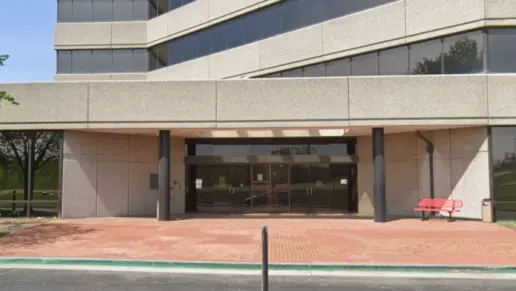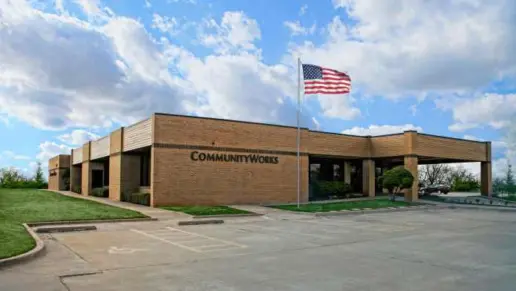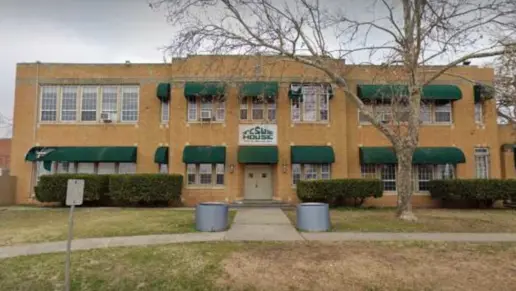I had the most caring doctor who helped me to regain my life. Then again, everyone was super nice here, from the first time I was there they always welcomed me with a friendly attitude and open arms.
About Catalyst Behavioral Services
Catalyst Behavioral Services provides outpatient treatment for adults with substance use disorders in Oklahoma City, Oklahoma. Their knowledgeable staff is committed to helping you along the way and offering vital resources for healing and self discovery. The facility offers evidence-based individual and small group therapy programs to make sure you get the most out of your treatment.
They provide assistance programs for those without insurance and take all major insurance plans including Medicaid. No one is denied admission because of their financial situation.
They’ve been helping people who are struggling with addiction since 1974. Despite the fact that treatment approaches have changed over time, the emphasis is still on client outcomes and efficient interventions. Often the best way to treat addiction is through group therapy. You can listen to others and share your experiences in these settings which promotes self awareness and the useful skills required for long term recovery.
Apart from group therapy they provide a variety of services like case management, peer recovery support, and individual therapy. The staff understands that each person’s experience with withdrawal is different and can vary in intensity and duration making it difficult to overcome. To help with cravings and withdrawal, their staff might recommend medication-assisted treatment (MAT) as a good fit.
Individualizing care in a safe and encouraging setting are at the heart of their strategy. Their evidence-based programs and nonjudgmental environment provide a safe environment for you to examine the effects of addiction and strive for a more satisfying life.
Latest Reviews
Location
Location
Accepted Insurance
Other Forms of Payment
Self-pay involves paying for treatment out of your own pocket. You can use savings or credit, get a personal loan, or receive help from family and friends to fund your treatment. If you don't have insurance or your insurance plan doesn't cover a specific program, self-pay can help ensure you still get the care you need.
Financial aid can take many forms. Centers may have grants or scholarships available to clients who meet eligibility requirements. Programs that receive SAMHSA grants may have financial aid available for those who need treatment as well. Grants and scholarships can help you pai for treatment without having to repay.
Sliding scale payments are based on a client's income and family size. The goal is to make treatment affordable to everyone. By taking these factors into account, addiction recovery care providers help ensure that your treatment does not become a financial burden to you or your family, eliminating one barrier to care.
Medicaid is a state based program that helps lower-income individuals and families pay for healthcare. Medicaid covers addiction treatment so those enrolled can use their coverage to pay for rehab. When a program accepts Medicaid the client often pays very little or nothing out of their own pocket.
Private insurance refers to any kind of healthcare coverage that isn't from the state or federal government. This includes individual and family plans offered by an employer or purchased from the Insurance Marketplace. Every plan will have different requirements and out of pocket costs so be sure to get the full details before you start treatment.
Addiction Treatments
Levels of Care
Treatments
The goal of treatment for alcoholism is abstinence. Those with poor social support, poor motivation, or psychiatric disorders tend to relapse within a few years of treatment. For these people, success is measured by longer periods of abstinence, reduced use of alcohol, better health, and improved social functioning. Recovery and Maintenance are usually based on 12 step programs and AA meetings.
To address the issues of addiction, each drug rehab in Oklahoma is tailored to meet the individual's needs. Treatment may occur in a residential or outpatient setting, and may last from a few days to several months.
Many of those suffering from addiction also suffer from mental or emotional illnesses like schizophrenia, bipolar disorder, depression, or anxiety disorders. Rehab and other substance abuse facilities treating those with a dual diagnosis or co-occurring disorder administer psychiatric treatment to address the person's mental health issue in addition to drug and alcohol rehabilitation.
A combined mental health and substance abuse rehab has the staff and resources available to handle individuals with both mental health and substance abuse issues. It can be challenging to determine where a specific symptom stems from (a mental health issue or an issue related to substance abuse), so mental health and substance abuse professionals are helpful in detangling symptoms and keeping treatment on track.
Opioid rehabs specialize in supporting those recovering from opioid addiction. They treat those suffering from addiction to illegal opioids like heroin, as well as prescription drugs like oxycodone. These centers typically combine both physical as well as mental and emotional support to help stop addiction. Physical support often includes medical detox and subsequent medical support (including medication), and mental support includes in-depth therapy to address the underlying causes of addiction.
Programs






Clinical Services
Group counseling is a big part of treatment by gaining knowledge from other people with similar problems. They have a wide variety of groups that can address everyone’s situations. Some examples of the groups are Recovery groups, substance abuse education, anger management, women’s group, men’s group, parenting group and more! Ratios for group sessions are kept to one counselor per eight clients to maximize quality and comfort. UA services are provided for those who need them or because of court requirements.
In individual therapy, a patient meets one-on-one with a trained psychologist or counselor. Therapy is a pivotal part of effective substance abuse treatment, as it often covers root causes of addiction, including challenges faced by the patient in their social, family, and work/school life.
Trauma therapy addresses traumatic incidents from a client's past that are likely affecting their present-day experience. Trauma is often one of the primary triggers and potential causes of addiction, and can stem from child sexual abuse, domestic violence, having a parent with a mental illness, losing one or both parents at a young age, teenage or adult sexual assault, or any number of other factors. The purpose of trauma therapy is to allow a patient to process trauma and move through and past it, with the help of trained and compassionate mental health professionals.
Couples therapy often focuses on a specific problem, such as addiction, intimacy, jealousy, or finances. Treatment is solution focused and change oriented. The couple works with the therapist to identify goals for therapy and actively participates in learning skills and behaviors to reach those goals.
Research clearly demonstrates that recovery is far more successful and sustainable when loved ones like family members participate in rehab and substance abuse treatment. Genetic factors may be at play when it comes to drug and alcohol addiction, as well as mental health issues. Family dynamics often play a critical role in addiction triggers, and if properly educated, family members can be a strong source of support when it comes to rehabilitation.
Without proper life skills, it is difficult to build a path to a better future. Life skills training gives you the tools you need to gain control of daily life and face challenges head on. This makes life skills training a crucial part of recovery programs in Oklahoma.
Nutrition therapy teaches you the importance of nutrition in recovery and overall health. You'll learn healthy ways to eat, which gives you the energy and strength that are essential for recovery. This treatment may involve training in grocery shopping and meal preparation.
Using recreational therapy in Oklahoma within a drug and alcohol addiction treatment program helps you find joy and purpose within healthy activities. These could include gardening, group games, team sports, and swimming. These activities promote relaxation and social interaction, which are crucial to sustain long term recovery.
Amenities
-
Residential Setting
-
Private Rooms
Accreditations

The Commission on Accreditation of Rehabilitation Facilities (CARF) is a non-profit organization that specifically accredits rehab organizations. Founded in 1966, CARF's, mission is to help service providers like rehab facilities maintain high standards of care.
CARF Accreditation: Yes
Contact Information
3033 North Walnut Avenue
West Building
Oklahoma City OK, 73105



